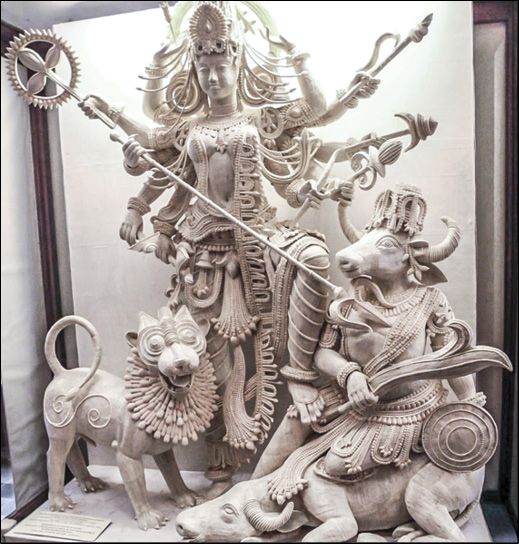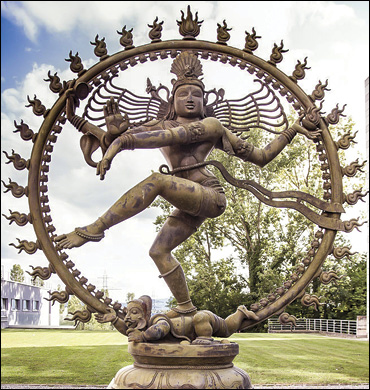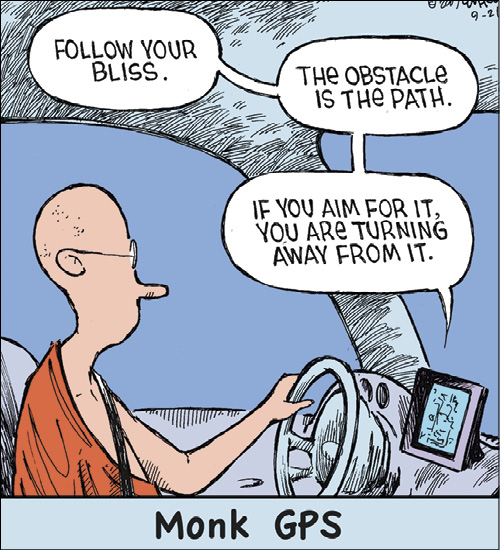“Let us be humble.”
Shirdi Sai Baba (1838-1918), Indian guru and saint
If I were asked to define the Hindu creed, I should simply say: Search after truth through nonviolent means. A man may not believe in God and still call himself a Hindu. Hinduism is a relentless pursuit after truth. Hinduism is the religion of truth. Truth is God. Mahatma Gandhi (1883-1944)
So potent is the power acquired through disciplined self-denial that those who attain it may even delay the moment of death. Tirukural 269
Science without religion is lame; religion without science is blind. Albert Einstein (1879-1955)
Be strict and intelligently critical about yourself and your own weakness and follies. But cushion your words and attitudes with Love. Love is the greatest persuasive power we know in life. Swami Chinmayananda (1916-1993), founder of Chinmaya Mission
Asceticism doesn’t lie in mere words; He is an ascetic who treats everyone alike. Asceticism doesn’t lie in visiting burial places; it lies not in wandering about nor in bathing at places of pilgrimage. Asceticism is to remain pure amidst impurities. Guru Nanak (1469-1539), founder of Sikhism
He who tells the truth is never wrong. Swahili Proverb
The rishis wrote in one sentence profundities that commentating scholars busy themselves over for generations. Endless literary controversy is for sluggard minds. What more quickly liberating thought than “God is” – nay, “God”? Swami Sri Yukteswar Giri (1855-1936)
Some people see the glass half full. Others see it half empty. I see a glass that’s twice as big as it needs to be. George Carlin (1937-2008), American stand-up comedia
You can discover more about a person in an hour of play than in a year of conversation. Plato (428-347 bce ), Greek philosopher
The great secret of true success, of true happiness, is this: the man or woman who asks for no return, the perfectly unselfish person, is the most successful. Swami Vivekananda (1863-1902)
The difference between the almost right word and the right word is really a large matter. ’Tis the difference between the lightning bug and the lightning. Mark Twain (1835-1910), American writer
Let no man pull you so low as to hate him. Martin Luther King Jr.
Those who accomplish great things pay attention to little ones. Malian Proverb
All birds find shelter during a rain. But the eagle avoids rain by flying above the clouds. Abdul Kalam, (1931-2015) 11th President of India
We join spokes together in a wheel, but it is the center hole that makes the wagon move. We shape clay into a pot, but it is the emptiness inside that holds whatever we want. We hammer wood for a house, but it is the inner space that makes it livable. We work with being, but non-being is what we use. Loa Tzu (4th or 6th century bce), author of the Tao Te Ching
Great calm, generous detachment, selfless love, disinterested effort: these are what make for success in life. If you can find peace in yourself and can spread comfort around you, you will be happier than an empress. Rabindranath Tagore (1861-1941)
We are fools whether we dance or not, so we might as well dance. Japanese Proverb
Here is a rule to remember in future, when anything tempts you to feel bitter: not “This is misfortune,” but “To bear this worthily is good fortune.” Marcus Aurelius (121-180), Roman emperor and Stoic philosopher
There are three kinds of devotees. The inferior devotee says, “God is out there” and thinks God is different from His creation. The mediocre devotee says, “God is antaryami, the inner guide who dwells in everyone’s heart;” thus the mediocre devotee sees God [only] within. But the superior devotee sees that God alone is everything, for He has become the twenty-four cosmic tattvas. That devotee finds that everything, above and below, is filled with God. Sri Ramakrishna Paramahansa (1836-1886)
Practice, not belief, is what causes spiritual progress. Satguru Bodhinatha Veylanswami, publisher of Hinduism Today
How can it remain so unknown? Simplicity is the answer. The Self is so simple, so uncomplicated, that the ramified external mind overlooks it. Satguru Sivaya Subramuniyaswami (1927-2001), founder of Hinduism Today
DID YOU KNOW?
The Wonders of Indian Cork
THE SHOLA PLANT HAS BEEN IN USE FOR crafting in bengal for thousands of years. Also known as Indian cork or Aeschynomene aspera, the shola plant has a soft, white core in its stem which is used for carving and is considered auspicious and pure. It is used during religious and social functions, notably for making the headdresses worn at weddings in Bengal. Being soft and lightweight, it is often used for making the attire, ornaments and other decorations for statues, sometimes being used to make large carvings of immense detail and beauty. The carvings resemble ivory but are cruelty-free, natural and biodegradable. They can, for example, be used for festivals where the Deity is submerged, without worry about polluting waterways. However, like many traditional handicrafts, shola carving is decreasing, partially due to disinterest and as well as a decline of wetlands in rural areas, reducing the plant’s propagation to a large extent.


BASICS
The Lord of Dance
NATARAJA, “KING OF DANCE,” IS A DEPICTION of God as the Cosmic Dancer. Perhaps Hinduism’s richest and most eloquent symbol, Nataraja represents the Primal Soul and the power, energy and life of all that exists. This is God’s intricate state of Being in Manifestation. The dance is the dance of the entire cosmos. Nataraja is chosen to depict the Divine because, in dance, that which is created is inseparable from its creator, just as the universe and soul cannot be separated from God. Dance and dancer are one. Nataraja is also stillness and motion wrought together. The stillness speaks of the peace and poise that lies deep within us all. The intense motion, depicted by His hair flying wildly in all directions, is an intimation of the fury and ferocity, the violent vigor, which fills this universe wherein we dwell. The implication of these opposites is that God contains and allows them both, that there is divine purpose at work in our life, whether we find ourselves engaged in its beauty or its “madness.”
Nataraja’s Dance, or all that happens, is composed of an ever-flowing combination of five foundational actions: 1) creation, or emanation, represented by His upper right hand and the drum, from which the Primal Sound issues forth, promulgating the rhythms and cycles of creation; 2) preservation, represented by His lower right hand in a gesture of blessing, abhaya mudra, saying “fear not;” 3) destruction, dissolution or absorption, represented by the fire in His upper left hand; 4) obscuring grace, the power which hides the truth, thereby permitting experience, growth and eventual fulfillment of destiny, represented by His right foot upon the prostrate figure Apasmarapurusha—the principle of ignorance, or ego; 5) revealing grace—which grants knowledge and severs the soul’s bonds—represented by Siva’s raised left foot, and by His lower left hand, held in gajahasta (“elephant trunk”) mudra, inviting approach. These five cosmic activities are sometimes personalized respectively as Brahma, Vishnu, Rudra, Maheshvara and Sadasiva—or as Sadyojata (creation), Vamadeva (preservation), Aghora (reabsorption), Tatpurusha (obscuration) and Ishana (revealing grace).


The ring of fire in which Nataraja dances is the hall of consciousness, chitsabha; in other words, the light-filled heart of man, the central chamber of the manifest cosmos. God dances the universe into and out of existence, veiling Ultimate Reality for most, unveiling it for devotees who draw near and recognize Ultimate Reality in the chamber of their own inner being.
=


